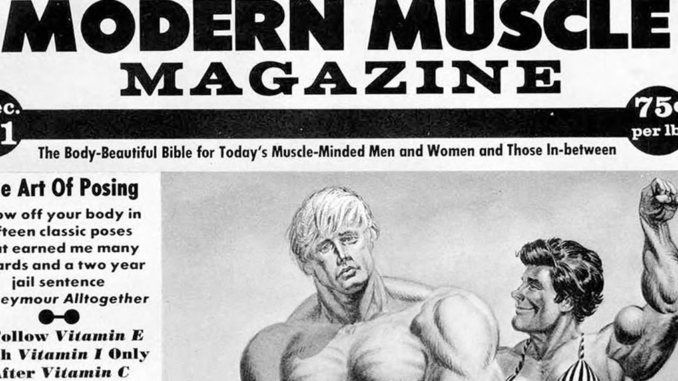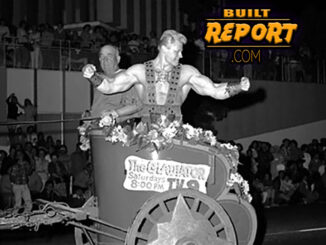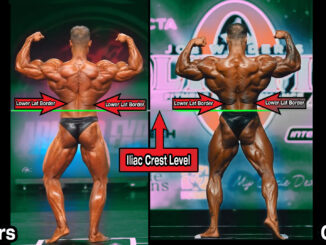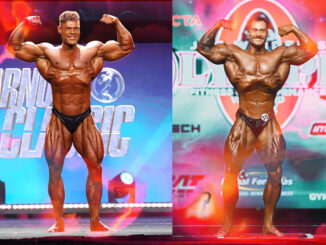
In the whimsical pages of the December 1971 issue of Mad Magazine, a comedic spectacle unfolded, as the satirical lens of the publication turned its focus onto the realm of Weider publications. As the cover of “Modern Muscle Magazine” was cracked open, readers were greeted with a seemingly earnest body transformation ad that, upon closer inspection, unraveled into a cleverly disguised photo retouching course.
Venturing further into the magazine’s comedic landscape, another advertisement beckoned readers to embark on an unconventional fitness journey – a transformation of everyday household items into makeshift gym equipment. The absurdity reached its zenith with the suggestion of fashioning a chinning bar from a humble mop handle and an upright piano standing on end, offering a tongue-in-cheek critique of the creative ingenuity often associated with fitness enthusiasts.
Mad Magazine spared no facet of Weider’s empire, lampooning the exploitation of the sexual revolution, deftly poking fun at the classifieds, and playfully satirizing the earnest letters to the editor that populated the pages of the original publications.
A particular highlight within the parody was the exclusive coverage of the fictitious Mr. Hand contest, a nod to the bodybuilding realm with humorous references to actual figures in the industry. Dave Draper, Art Zeller, and Marvin Eder were playfully acknowledged in this satirical spectacle, adding a touch of irreverent humor to the bodybuilding landscape.
Adding to the comedic lineup, the former Mr. Hand, now turned coach, bore the moniker John Forbotten – a clever wink to the real-life bodybuilder John Farbotnik. The fictitious Mr. Hand contest became a canvas for Mad Magazine to weave a tapestry of jest, capturing the essence of the era’s bodybuilding scene with a blend of parody and homage.
Closing the satirical showcase, a full-page Joe Weedgerm weight set ad leaped from the pages, promising outlandish results with a guarantee to add inches to arms, chest, and simultaneously subtract from the reader’s wallet. This tongue-in-cheek nod to the extravagant promises of fitness advertisements of the time encapsulated Mad Magazine’s knack for playful subversion.
In essence, the December 1971 issue of Mad Magazine became a playground of comedic commentary, utilizing satire to both lampoon and celebrate the quirks and eccentricities of the bodybuilding and fitness culture prevalent in the Weider publications of the era.




Be the first to comment